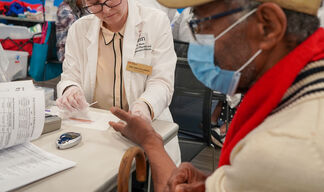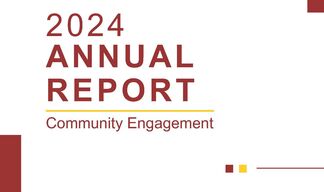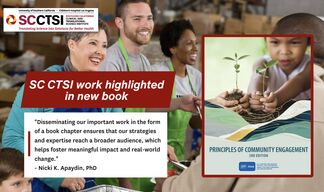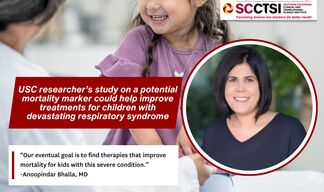The SC CTSI's Community Engagement Team Launches Online COVID-19 Educational Workshop to Support LA's Latinx Communities
The workshop series delivers accurate and culturally tailored information to help members of the Latinx community protect themselves and their families during the COVID-19 pandemic.
The COVID-19 pandemic has caused illness widely throughout the United States, but some communities have been hit disproportionately hard, such as the Latinx community. To help slow the spread of the pandemic in Los Angeles and Southern California, the Southern California Clinical and Translational Science Institute's (SC CTSI) Community Engagement team has created a new workshop series specifically designed to give the region's Latinx community the knowledge they need to stay healthy and help speed the state's return to life as usual.
The COVID-19 workshops are part of the Community Engagement team's mission to improve the overall health of communities throughout Los Angeles and Southern California and to reduce health disparities between the region's various racial, ethnic and economic groups. The series, "COVID-19 and our Latin Community," consists of four weekly workshops, conducted online via Zoom. The group held 110 sessions with 527 attendees in 2020.

"The Latinx community here in Los Angeles has been very receptive to education in these difficult times," said Sara Calderon, a Research Ambassador with the SC CTSI's Community Engagement team, who is one of the workshop organizers and instructors. "The news that people receive from much of the media focuses only on deaths and often can only often serve to alarm people. But our classes are oriented to give useful and accurate information that we have collected from health authorities like the CDC, WHO, PAHO, and the Los Angeles County Department of Public Health."
Each of the four workshops in the series provide information about a different aspect of COVID-19 and methods to maintain individual, family, and community health, including:
- Basic information about coronaviruses and COVID-19, including symptoms, preventing spread, cleaning and disinfection, rumors about COVID-19, and places for free testing
- Community mitigation, how to review reliable websites on COVID-19, California's reopening phases, government resources for the community
- Emotional health, managing stress, anxiety and tools to promote resilience
- Public health topics, such as contact tracing, safe quarantining and isolation of sick or exposed people, correct use of masks and safety protocols.
Information about available vaccines and how to become vaccinated is now also being integrated into the workshop series.
The convenience and safety of the videoconference courses has also meant that many early participants invited friends and relatives, extending the reach of the workshop program more broadly through the region, said Calderon.
Members of the Latinx community who participated in the workshops appreciated that the courses were delivered by USC, long a trusted center of education and health research in the region. Others said the workshops will help control the COVID-19 pandemic, which has been running rampant through the U.S. and the rest of the world for nearly a year.
"There are families that are still incredulous about what is happening and thus everyone an entire family can get infected because they do not follow public health guidelines," said participant Brenda Campos. "These workshops explain logically why and how we can protect ourselves and others."
Other participants say the workshops have enabled them to replace the worry and stress about the pandemic with the knowledge they need to protect their health and that of their families.
"The information is presented with examples that we can observe in the community where we live, so it is easier to understand the theory behind the practice of mitigation of the disease," said participant Marte Gonzalez. "Thus, we can continue the whole strategy for mitigation in a more conscious way."
The interactive workshops have also been a learning experience for the Community Engagement team.
"We have gotten a much better idea of the needs of people in the community, such as information on where to receive resources like food and shelter, how to apply for unemployment benefits, and how to get updated information about COVID-19, said Alma Garcia, who is also an SC CTSI Research Ambassador involved with the educational series. "These workshops are important and successful because they were created by people who live in the community and who experience the same concerns."
The success of the COVID-19 workshop series is due in large part to years of collaboration between the SC CTSI and Latinx, Asian, African American and other communities throughout Southern California. The SC CTSI and residents have worked together to develop the relationships and expertise that enables the success of educational programs such as the COVID-19 workshops, and that connects other world-class health research and medical resources of the University of Southern California and Children's Hospital Los Angeles with California residents.
"This is a critical time to provide Los Angelenos with data driven, science-based, credible information to ensure they can take the steps to protect themselves from this pandemic," said Michele Kipke, PhD, SC CTSI Co-Director and Director of Community Engagement. "This involves public health measures to prevent infection but also use of the new vaccines that will soon become widely available. Many individuals have questions, concerns, or have heard misinformation about the vaccine and our goal is to provide information that is culturally tailored to different populations within our diverse communities to help them make well informed decisions.



